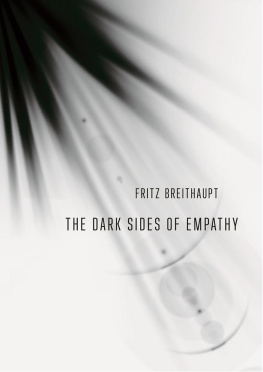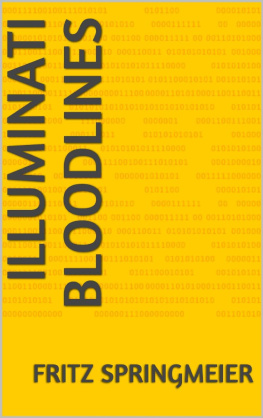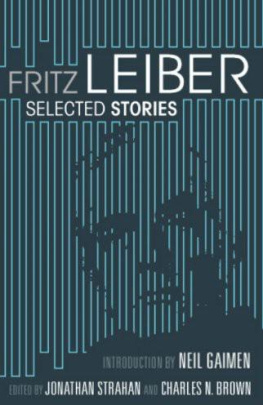Breithaupt Fritz - The Dark Sides of Empathy
Here you can read online Breithaupt Fritz - The Dark Sides of Empathy full text of the book (entire story) in english for free. Download pdf and epub, get meaning, cover and reviews about this ebook. year: 2019, publisher: Lightning Source Inc., genre: Politics. Description of the work, (preface) as well as reviews are available. Best literature library LitArk.com created for fans of good reading and offers a wide selection of genres:
Romance novel
Science fiction
Adventure
Detective
Science
History
Home and family
Prose
Art
Politics
Computer
Non-fiction
Religion
Business
Children
Humor
Choose a favorite category and find really read worthwhile books. Enjoy immersion in the world of imagination, feel the emotions of the characters or learn something new for yourself, make an fascinating discovery.
- Book:The Dark Sides of Empathy
- Author:
- Publisher:Lightning Source Inc.
- Genre:
- Year:2019
- Rating:5 / 5
- Favourites:Add to favourites
- Your mark:
- 100
- 1
- 2
- 3
- 4
- 5
The Dark Sides of Empathy: summary, description and annotation
We offer to read an annotation, description, summary or preface (depends on what the author of the book "The Dark Sides of Empathy" wrote himself). If you haven't found the necessary information about the book — write in the comments, we will try to find it.
The Dark Sides of Empathy — read online for free the complete book (whole text) full work
Below is the text of the book, divided by pages. System saving the place of the last page read, allows you to conveniently read the book "The Dark Sides of Empathy" online for free, without having to search again every time where you left off. Put a bookmark, and you can go to the page where you finished reading at any time.
Font size:
Interval:
Bookmark:
One should not dedicate a book about the dark sides of empathy to anyone. However, one can thank those who helped in the making of the book. This starts with my family, who had to endure the long process of writing and rewriting and all the emotions that go along with that. Thank you, Leela, Kira, Lara, and Noah.
The book is the result of many conversations with family, friends, colleagues, and students. Many of their ideas or formulations found their way into the book. Even better, they set me straight when my thoughts were off target. If it would not sound like a backhanded compliment, I could say that they offered me much empathy. Some of them may be astonished that only five dark sides made the final list. In particular, I would like to thank Colin Allen, Aleida Assmann, Claudia Breger, Christopher Chiasson, Daniel Cuonz, Jean Decety, Wolfram Eilenberger, Kevin Houser, Phillip Hlzing, Philipp Kanske, Suzanne Keen, Sarah Konrath, Binyan Li, Lauren Lu, Christoph Paret, Eyal Peretz, Cassidy Sugimoto, Johannes Trk, Arne Willee, and Lisa Zunshine.
The book started as a translation of my book Die dunklen Seiten der Empathie (Frankfurt: Suhrkamp, 2017). My translator, Andrew B. B. Hamilton, gave the original book a new spin and infused it with his endless wit and energy. But somehow in the process it morphed into a new book. This is due to the fabulous editor Mahinder S. Kingra from Cornell University Press, who shook down every word and idea until they fell into place. Having started as an accessory, he ended up an equal partner in crime. Julia Cook gave the text the final touches as the exceptional copyeditor who remembered every twist of my arguments until the end; I fear she understands the book better than I do.
A few ideas from my other texts also found their way into the book, including some thoughts from my earlier book, Kulturen der Empathie (Frankfurt: Suhrkamp, 2009), and speculations about the development of sadistic empathy first developed in Empathy for Empathys Sake: Aesthetics and Empathic Sadism, in Empathy and its Limits, ed. Aleida Assmann und Ines Detmers (New York: Palgrave, 2016), 15165.
The translation of the book was generously supported by a grant-in-aid from Indiana Universitys Office of the Vice Provost for Research. My previous work was supported by a grant from the Templeton Foundation that allowed me to lay the foundations for the ideas presented in this book.
Ackerman, Joshua M., Noah J. Goldstein, Jenessa R. Shapiro, and John A. Bargh. You Wear Me Out: The Vicarious Depletion of Self-Control. Psychological Science 20, no. 3 (2009): 32632.
Ahoda, Gustav. Theodor Lipps and the Shift from Sympathy to Empathy. Journal of the History of the Behavioral Sciences 41 (2005): 15163.
Allen, Colin, and Marc Bekoff. Species of Mind: The Philosophy and Biology of Cognitive Ethology. Cambridge, MA: MIT Press, 1999.
Anderson, Benedict. Imagined Communities: Reflections on the Origin and Spread of Nationalism. New York: Verso, 2016.
Anderson, Emma Louise, Eloisa Steen, and Vasileios Stavropoulos. Internet Use and Problematic Internet Use: A Systematic Review of Longitudinal Research Trends in Adolescence and Emergent Adulthood. International Journal of Adolescence and Youth 22, no. 4 (2017): 43054.
Anscome, Gertrude Elizabeth Margaret. Intention. Cambridge, MA: Harvard University Press, 1957.
Arendt, Hannah. Eichmann in Jerusalem: A Report on the Banality of Evil. New York: Penguin, 2006.
Assmann, Aleida, and Ines Detmers, eds. Empathy and Its Limits. New York: Palgrave, 2016.
Bal, Matthijs, and Martijn Veltkamp. How Does Fiction Reading Influence Empathy? An Experimental Investigation on the Role of Emotional Transportation. PloS One 8, no. 1 (2013): e55341.
Barnes, Jennifer L., Tyler Hill, Melanie Langer, Margaret Martinez, and Laurie R Santos. Helping Behaviour and Regard for Others in Capuchin Monkeys (Cebus apella). Biology Letters 4, no. 6 (2008): 63840.
Baron-Cohen, Simon, Alan M. Leslie, and Uta Frith. Does the Autistic Child Have a Theory of Mind? Cognition 21, no. 1 (1985): 3746.
Bartal, Inbal Ben-Ami, Jean Decety, and Peggy Mason. Empathy and Pro-Social Behavior in Rats. Science 334, no. 6061 (2011): 142730.
Barton, Keith C., and Alan W. McCully. Trying to See Things Differently: Northern Ireland Students Struggle to Understand Alternative Historical Perspectives. Theory & Research in Social Education 40, no. 4 (2012): 377.
Barton, Keith C., and Alan W. McCully. You Can Form Your Own Point of View: Internally Persuasive Discourse in Northern Ireland Students Encounters with History. Teachers College Record 112, no. 1 (2010): 14281.
Batson, Daniel C. The Empathy-Altruism Hypothesis: Issues and Implications. In Empathy: From Bench to Bedside, edited by Jean Decety, 4154. Cambridge, MA: MIT Press, 2012.
Batson, Daniel C. These Things Called Empathy: Eight Related but Distinct Phenomena. In The Social Neuroscience of Empathy, edited by Jean Decety, 315. Cambridge, MA: MIT Press, 2009.
Batson, Daniel C., Tricia R. Klein, Lori Highberger, and Laura L. Shaw. Immorality from Empathy-Induced Altruism: When Compassion and Justice Conflict. Journal of Personality and Social Psychology 68, no. 6 (1995): 104254.
Baum, Katrina, Shannan Catalano, and Michael Rand. Stalking Victimization in the United States. Bureau of Justice Statistics, January 2009, NCJ 224527.
Bechara, Antoine, Hanna Damasio, Daniel Tranel, and Antonio R. Damasio. Deciding Advantageously Before Knowing the Advantageous Strategy. Science 275, no. 5304 (1997): 129395.
Birkett, Melissa Ann. Self-Compassion and Empathy across Cultures: Comparison of Young Adults in China and the United States. International Journal of Research Studies in Psychology 3, no. 1 (2013): 2534.
Bjerregaard, Beth. An Empirical Study of Stalking Victimization. Violence and Victims 15, no. 4 (2000): 389406.
Blair, James R. Responding to the Emotions of Others: Dissociating Forms of Empathy through the Study of Typical and Psychiatric Populations. Consciousness and Cognition 14, no. 4 (2005): 698718.
Bloom, Paul. Against Empathy. New York: Harper Collins, 2016.
Borsche, Tilman. Auf wen bezieht sich das Wort wir in Merkels Satz Wir schaffen das? Philosophie Magazin 2 (2016): 55.
Boyd, Brian. On the Origin of Stories. Cambridge, MA: Harvard University Press, 2009.
Breithaupt, Fritz. The Birth of Narrative from the Spirit of the Excuse. A Speculation. Poetics Today 32 (Spring 2011): 10728.
Breithaupt, Fritz. Blocking Empathy: A Three-Person Model of Empathy. Emotion Review 4, no. 1 (2012): 8491.
Breithaupt, Fritz. Culturas de la Empata. Buenos Aires: Katz Editores, 2011.
Breithaupt, Fritz. Empathic Sadism: How Readers Get Implicated. In The Oxford Handbook for Cognitive Literary Studies, edited by Lisa Zunshine, 44062. Oxford: Oxford University Press, 2015.
Breithaupt, Fritz. Empathy and Aesthetics. Zeitschrift fr sthetik und Allgemeine Kunstwissenschaft 63, no. 1 (2018): 4560.
Breithaupt, Fritz. Empathy for Empathys Sake: Aesthetics and Empathic Sadism. In Empathy and its Limits, edited by Aledia Assmann and Ines Detmers, 15165. New York: Palgrave, 2016.
Breithaupt, Fritz. Kultur der Ausrede. Berlin: Suhrkamp, 2012.
Breithaupt, Fritz. Kulturen der Empathie. Frankfurt: Suhrkamp, 2009.
Brewer, Gayle, and Jade Kerslake. Cyberbullying, Self-Esteem, Empathy and Loneliness. Computers in Human Behavior 48 (2015): 25560.
Brown, Jane K. Goethes Allegories of Identity
Font size:
Interval:
Bookmark:
Similar books «The Dark Sides of Empathy»
Look at similar books to The Dark Sides of Empathy. We have selected literature similar in name and meaning in the hope of providing readers with more options to find new, interesting, not yet read works.
Discussion, reviews of the book The Dark Sides of Empathy and just readers' own opinions. Leave your comments, write what you think about the work, its meaning or the main characters. Specify what exactly you liked and what you didn't like, and why you think so.












